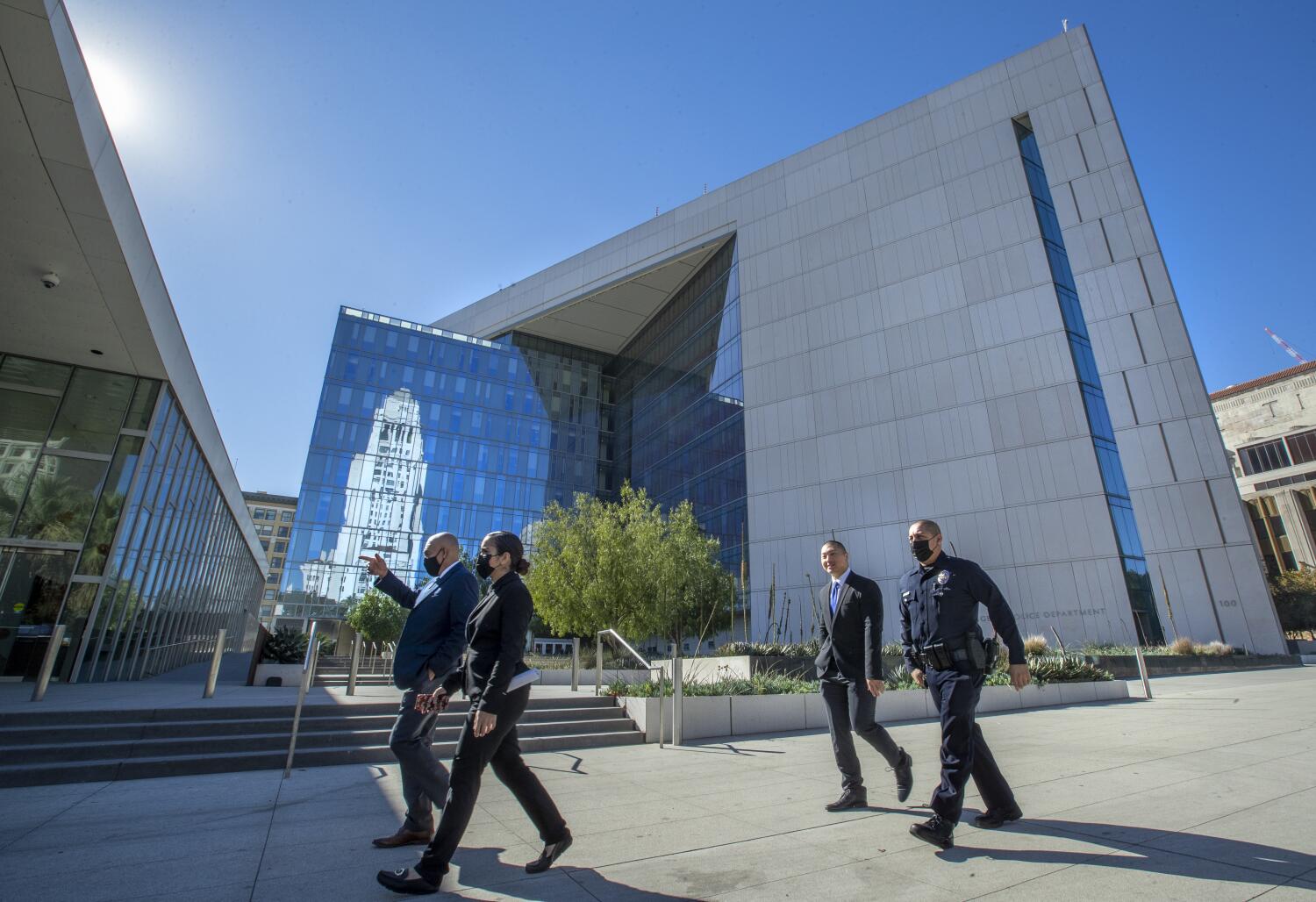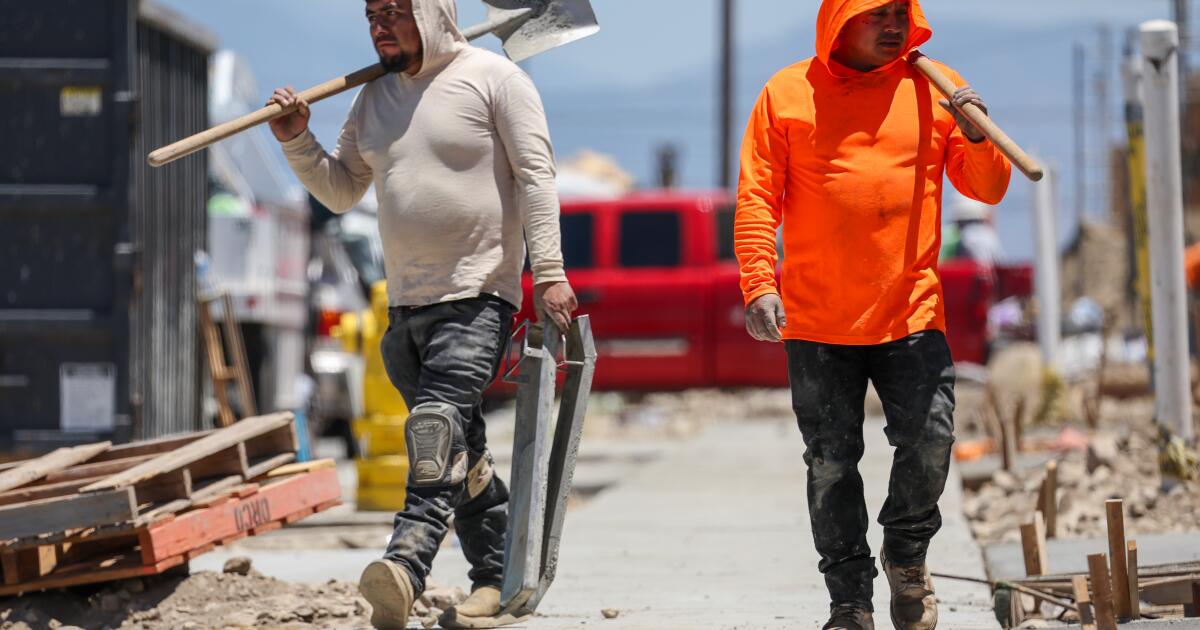
With a ballot measure deadline approaching, the Los Angeles City Council is divided over the language of a proposal that, among other reforms, could give the police chief the power to fire officers for serious misconduct.
Some city officials support a plan that would give the chief the authority to fire an officer for sexual misconduct, fraud, excessive force, misconduct while on duty and other violations covered under a state law, SB 2, which strips officers of their badges for such conduct.
Other officials worry that limiting dismissable offenses would reduce a chief’s ability to get rid of officers who have violated the public trust in other ways but whose cases do not fall under the decertification law. In either scenario, officers would be allowed to appeal their dismissals, just like many other public employees.
The debate threatens to derail a last-minute, long-running effort to reform the system used to rid the LAPD of bad cops, which has come under heavy criticism in recent years because officers convicted of serious crimes have kept their jobs.
The council’s proposal, which would require voter approval on the November ballot, would eliminate the option for officers to have their disciplinary panel hearings conducted only by civilians, because citizens tend to be more lenient in handing out punishments.
The full council is expected to vote on the issue Tuesday.
The original proposal was introduced last year, and some city and police officials have expressed frustration with the lengthy process that has made it difficult for decision-makers to finalize the proposed changes.
Council Member Hugo Soto-Martinez questioned the use of binding arbitration for officers who appeal their terminations or suspensions. He cited studies and testimony from cities and police leaders across the country that show outcomes typically favor accused deputies.
He said unless the council reaches a consensus Tuesday, he would like to wait until next year to give city officials enough time to clarify the ballot language.
“The current proposal would eliminate the most important part of this reform and create even more opportunities for officials who have committed serious misconduct to avoid accountability,” he said in response to questions from the Times. “These last-minute changes have confused council members, city staff and even our own attorneys. It would be irresponsible to move forward without thoroughly vetting what we are putting before voters.”
He added: “Our office introduced a plan to reform police discipline 16 months ago. Time and again, we see the city sit on its hands for months and do nothing, making last-minute changes without transparency or public input. This is why so many people don’t trust our government.”
Soto-Martinez, a former labor organizer, formed an unlikely alliance last year with his council colleague and former police union lawyer Tim McOsker to call for reducing citizen involvement.
But recently there have been signs of conflict.
A heated debate broke out on this occasion. The CIT meeting was held on Friday.Council’s Rules Committeeduring which McCosker and representatives from the LAPD and the city attorney’s office debated whether the draft language actually reflected the council’s intent.
McCosker, who favors using the SB 2 standard, said a chief could also recommend dismissal for other offenses but would have to go through the board of rights process.
“I’m very angry at the city attorney, for whatever reason, for changing the intent of my motion and using language on me last night. I’m very angry that the city attorney was allowed to change the substance of my motion and put words in my mouth,” he said, “and then make arguments that are going to be difficult for him to defend. I’m sorry. It’s going to be difficult to defend. You need 300 more lawyers?”
Critics say the current disciplinary system lacks transparency and seriously undermines accountability efforts.
The council’s tentative plan, which would require approval from Los Angeles voters in November, focuses on all-civilian disciplinary panels, which review the cases of officers accused of misconduct and decide whether they should be fired or punished.
“The main thing is police accountability and transparency and holding officers to a higher standard, and that’s the main goal here,” Michael Rimkunas, deputy chief of the Professional Standards Bureau, said in an interview.
Rimkunas and other senior department officials spoke out against several provisions of the recent council resolution.
The proposal would effectively reverse a 2017 charter amendment that gave officers the option of having their disciplinary cases heard only by civilians. Controversially, it would also move toward an arbitration process, which opponents say also favors accused officers.

















